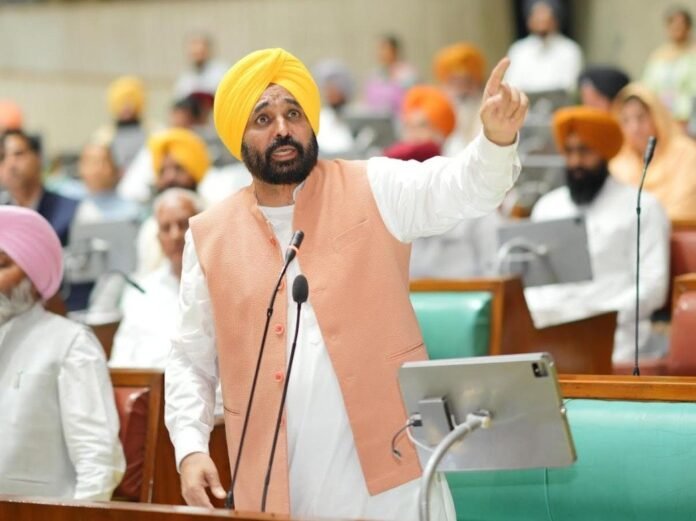In a momentous assertion of regional autonomy and water sovereignty, the Punjab Vidhan Sabha on Monday passed a unanimous resolution declaring the state’s withdrawal of recognition from the Bhakra Beas Management Board (BBMB). Spearheaded by Chief Minister Bhagwant Singh Mann, the move signals Punjab’s firm rejection of what it perceives as decades of water mismanagement and systemic marginalisation by federal authorities and neighbouring states.
At the heart of the conflict lie two rivers: the Sutlej and the Beas. Both rivers flow almost entirely through Punjab, and Mann insists their waters belong to the state alone. Yet, since the creation of BBMB in the aftermath of India’s Partition, their management has rested in the hands of a federally controlled board that also serves Haryana, Rajasthan and Himachal Pradesh. For Punjab, this arrangement has long been a source of simmering grievance. The state, despite being the geographic origin and primary stakeholder in these river systems, alleges that its share has been arbitrarily diminished and diverted to other states without consent.
“This is not just a resolution; it’s a call for justice,” declared Mann in the assembly, accusing the central government and the BBMB of treating Punjab like a resource colony. He described the BBMB as a “white elephant,” outdated in its functioning and prejudiced in its decision-making. Punjab, he asserted, will no longer abide by decisions made unilaterally or under duress, especially in secretive meetings allegedly orchestrated by the BJP-led central government.
The chief minister’s rhetoric has ignited both support and scrutiny. While regional leaders across party lines rallied behind him in an unprecedented show of unity, critics question whether the move might escalate inter-state tensions or trigger constitutional confrontations with the centre. Still, the resolution reflects deep-rooted anxiety over water security in Punjab, a state already grappling with an acute groundwater crisis and the ecological aftermath of India’s Green Revolution.
Over the past three years, Mann’s administration has focused on restoring Punjab’s canal infrastructure to reduce dependence on groundwater. In 2021, just 22% of the state’s farmland received canal water. Today, according to the Chief Minister, nearly 60% does. “We are using 80% of our available canal water. Every drop is precious,” Mann said, warning that Punjab can no longer afford to share its supply.
Recent incidents have exacerbated tensions. Haryana, a neighbouring state, allegedly exhausted its allocated water share by March 31. Punjab, citing humanitarian grounds, provided 4,000 cusecs for drinking water needs. But a subsequent demand from Haryana for 8,500 cusecs sparked outrage in Chandigarh. In response, Mann claimed the BBMB convened an “illegal” midnight meeting to force Punjab’s hand. He declared Punjab would not provide “a single drop more” beyond what is currently allotted for humanitarian needs.
Beyond administrative wrangling, the issue has tapped into deeper cultural and political fault lines. Mann accused the BJP government of harbouring an “anti-Punjab mindset,” even alleging that the party would remove the word “Punjabi” from the national anthem if given the chance. He also invoked historical grievances, blaming past Congress and Akali governments for betraying Punjab’s water interests and ignoring local communities.
The Chief Minister rejected the Dam Safety Act, labelling it an intrusion into Punjab’s rights and autonomy. “Punjab has long protected India’s dams. We don’t need lessons in safety from those who don’t understand our rivers,” Mann asserted.
Monday’s resolution may not have immediate legal consequences for BBMB’s operations, which are backed by national legislation. However, it sends a powerful political message at a time when water scarcity, climate stress, and federal-state relations are under intense national scrutiny. Whether the stand taken by Punjab will lead to a re-evaluation of water-sharing agreements or deepen the rift between state and centre remains to be seen.
For now, what is clear is that water has become a potent symbol of identity, self-determination, and political survival in India’s agrarian heartland. And Punjab, bruised by history and thirsty for justice, has drawn a line.
This article is auto-generated from a syndicated news source and has been edited for style and clarity.
#PunjabWaterCrisis #BBMBDispute #IndianPolitics #WaterRights #ClimateJustice
Pls give heading and hashtags




